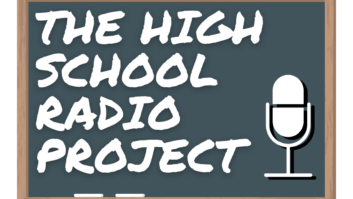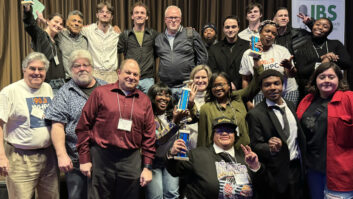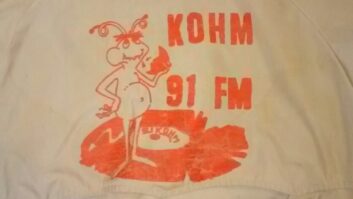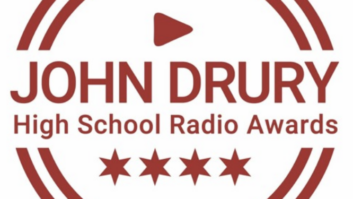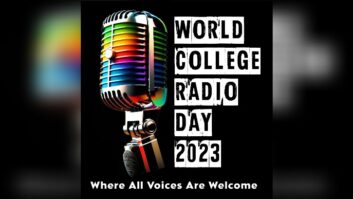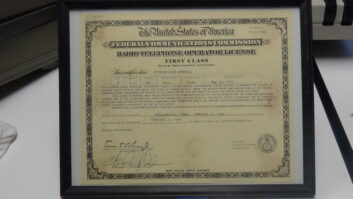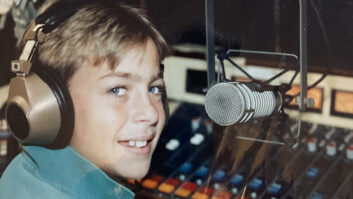American college radio deserves more than it gets from the broadcast industry at large — more attention, more nourishment, more celebration and more opportunities for young people who will graduate soon.
Pursued wisely, such a strategy offers a great potential payoff: What could be more valuable to stations in 2012 than access to a larger pool of young people excited not only about radio but about all forms of new media, ready to experiment with mixing the two in ways we haven’t thought of yet?
Blogger Jennifer Waits writes in this issue of Radio World that college radio continues to offer an alternative for adventurous radio listeners.

Photo Credit: iStockphoto/Brenda A. Carson “Throughout the course of profiling stations and DJs, I’ve found that college radio isn’t just alive,” she says, “it’s thriving, even as the listening landscapes changes.” These comments are welcome particularly given that some educational institutions apparently would rather enjoy one-time cash infusions than continue to operate their radio licenses.
THANKS, WXDR
College radio played a crucial role in my own career.
I well remember tightening my courage to the proverbial sticking place and walking into the offices of tiny FM station WXDR at the University of Delaware. That decision may not have changed much of radio’s history but it sure changed me.
Not only had I discovered an outlet for my love of performance and words, but I’d found a place that would teach me to look beyond the conventional and the expected, to appreciate the diversity available in music, words and other art forms if I’d take the trouble to listen.
We students liked sharing an anecdote, perhaps a wishful one, that our call letters stood for “sex, drugs and rock and roll.” But beyond the recreational veneer, WXDR offered me my first chance to talk into a microphone when someone actually was listening; to learn how to operate broadcast equipment; to report a news story in an environment where making an error would bring actual consequences; to interview government and business people; to manage my peers in a newsroom.
I found out how to create an effective audio package; I sat behind the foul ball screen near home plate and announced baseball games; I served on the station board and eventually was consulted by administrators who sought to make professional hiring decisions.
Critically, I discovered the delights of jazz and urban music and bluegrass and comedy, and with that came a broader realization that my personal boundaries had until then been pretty narrow — and not only in matters of music. (WXDR also brought me treasured, lifelong friends, but that’s for a different column.)
Not every college station offers such opportunities, and as Waits writes on page 37, the medium takes many forms; but the potential benefits to a student are evident. Perhaps less apparent are gains to commercial stations and large noncoms of engaging more closely with colleges.
I’m troubled by a dismissive attitude I’ve sensed from many people in radio about college broadcasting. Maybe the mindset came about because radio long had more talent than it could handle knocking on its doors, trying to get in. However, we’re not the cool game in town anymore, or not the only one. I’m making a generalization but it seems to me that college radio has operated far too long on the fringe of the business. A closer relationship between college stations and the rest of our industry would offer benefits in both directions.
Have you wondered why some young people in college radio are skeptical about the established industry and perceive it as hidebound? Have you asked them? (Not via a survey or poll, but an actual conversation?)
Is there a college station nearby that would benefit from your expertise as a counselor or éminence grise? Have you contacted the GM, engineer or student advisor to offer such a relationship?
Does your station or cluster promote job opportunities and internships via school stations? Does your corporation have an outreach program to colleges for hiring and internships?
Is there a way your station and a local college outlet could partner on a promotional campaign or event, benefitting both? Remember, the school station may have something you don’t: “ears on the ground” in a desirable youth demographic.
Could your programming department create a “next-generation advisory” position whereby a talented young person could, say, pick out an hour of your weekend music, or help set up focus groups among young people so you can glean ideas from his or her peers?
Do you know the name of the communications professor or head of the media department at the local school? Have you asked him or her how changes in perceptions of radio and new media are affecting their curriculum?
How can we make it easier for students and other young people to participate at major trade shows?
Are you aware of the annual College Radio Day that launched last year and considered whether your station might cross-promote it? Organizers tell me they’d hoped for 50 participating stations last year; they ended up with 364. They’ve surpassed that for this year’s event, set for Oct. 2, and plan an album to raise funds for college stations.
Do you have an underutilized HD2/HD3 channel? If so have you considered that students or young people might have both the programming ideas and the marketing energy to try to make something out of it?
Have you attended a college radio convention in recent years, to see what’s happening in that arena and to scout for talent?
Have you donated time or money to a college station?
It seems to me that any station manager or engineer concerned with future development and evolution of radio might want to consider these questions.





